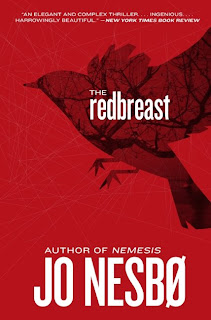
"You got a cell phone?" I asked, rising to my feet as I spoke. Amelia nodded. "Call the queen's place. Tell them to send someone over right now."
"What?" Her eyes were confused, even as her fingers were punching in numbers.
Looking at the closet, I could see the fingers of the corpse twitch.
"He's rising," I said quietly.
It only took a second for her to get it. "This is Amelia Broadway on Chloe Street! Send an older vampire over here right now," she yelled into the phone. "New vamp rising!" She was on her feet now, and we were running for the door.
We didn't make it.
-Definitely Dead
Yes, we're revisiting the world of Sookie Stackhouse, which means many a scene of our plucky heroine in imminent peril. And as resourceful as Miss Sookie is, she rarely manages to come through unscathed.
So how does Sookie wind up in the hospital this time? Well, she heads down to New Orleans to wrap up the affairs of her cousin, Hadley. Does that name ring a bell? It should. Charlaine Harris has mentioned Sookie's wayward cousin pretty consistently, to the point where she had to show up sooner or later. In this book, however, Hadley is revealed to have become a vampire since Sookie saw her last and, more recently, joined the ranks of the "definitely dead." The latter is revealed so casually that I almost thought I had missed a book - and I still feel like I should see if there was a short story that fills in the gaps. Sookie mentions that she has met the Queen of Louisiana, Sophie-Anne Leclerq, and witnessed the punishment of Hadley's killer in such an off-hand way that it almost seems as though she's summing up something we should already know. Details, please!
Other than that, Definitely Dead hums right along. Sookie is navigating a new relationship with the weretiger, Quinn, and, more interestingly, having to reevaluate what she knows about Vampire Bill. She spends a fair amount of time with Queen Sophie-Anne, who loved Hadley dearly, and watches an ectoplasmic reconstruction - a neat addition to Harris's bag of tricks. Sookie's also still coping with the ramifications of the whole Debbie Pelt fiasco from Dead to the World. While I'm confused about how Harris handled the Hadley storyline, I admire her persistence in not letting the Debbie Pelt story wrap up too neatly. Many authors would be tempted to let Sookie off more easily, without having the Pelt family doggedly pursuing her for answers. It took her longer to finish the arc this way, but it was better done for it.
I have to admit, I'm not too excited about Sookie's relationship with Quinn. He's presented as a stand-up guy, which ranks him ahead of some (cough, Alcide, cough, Bill), but it's not nearly as fun as her relationship with Eric has been, nor as intense as her time with Bill. If she's not going to end up with either of the latter two, then I hope Harris can at least dream up someone a bit more interesting than Quinn. (Yes, I want someone more interesting than a weretiger. What can I say, I have high standards.)
I read an excerpt from the next book at the end of this one, and I have to say I found it a little dry. Nonetheless, I'm sure I will pick it up at some point.
Up next: Back to Keats. Slow, but steady on that one.





